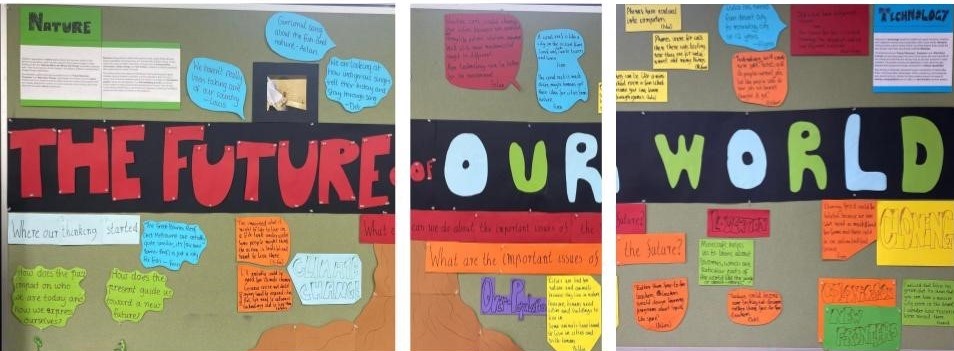“Imagination is everything. It is the preview of life’s coming attractions” (Albert Einstein)
Across the first 2 weeks of term 2, Year 2 children’s fascination with the future has equalled their capacity to contemplate potential issues and how they may shape the years and decades to come. The documentation stemming from our inquiry into the future exposes new, fun and complimentary learning pathways that will continue to value and enhance the children’s positioning as experts of change. Furthermore, as the pathways are hooked by the future, we, the Year 2 teachers, predict that children will greatly enjoy their journey as consideration of the future requires and concurrently provokes imaginative, divergent and almost playful thinking.
“I think the future is interesting because I like questions, writing about it and making predictions about what will happen.” – Elspeth
“I like thinking about the future because it is so open-ended, anything could happen and really helps my chain of thinking”. – Rohan
“We don’t know the answers. We have to really, really think about what’s going to happen.” – Elliot
“It’s exciting thinking about what will happen in the future. I like imagining what will happen.” – Lucie
Future Dilemmas
This provocation is designed to develop children’s ethical and moral capabilities as they contemplate potential issues of the future such as cloning, overpopulation, health, and technological advances in robotics and artificial intelligence. Early responses to the provocation include informal debate and building expansive worlds that aim to solve many problems presented by the issues. The children have shown a desire to learn from mistakes of the past, particularly concerning climate change.
“I like trying to solve the problems of the future. There are lots of possibilities”- Finn
It’s hard to solve the problems because we don’t know what we’re going to have. I like the mystery of it though” – Rohan
“It could be amazing that we wake up with amazing coral views but we could also be destroying that same coral” – Manny
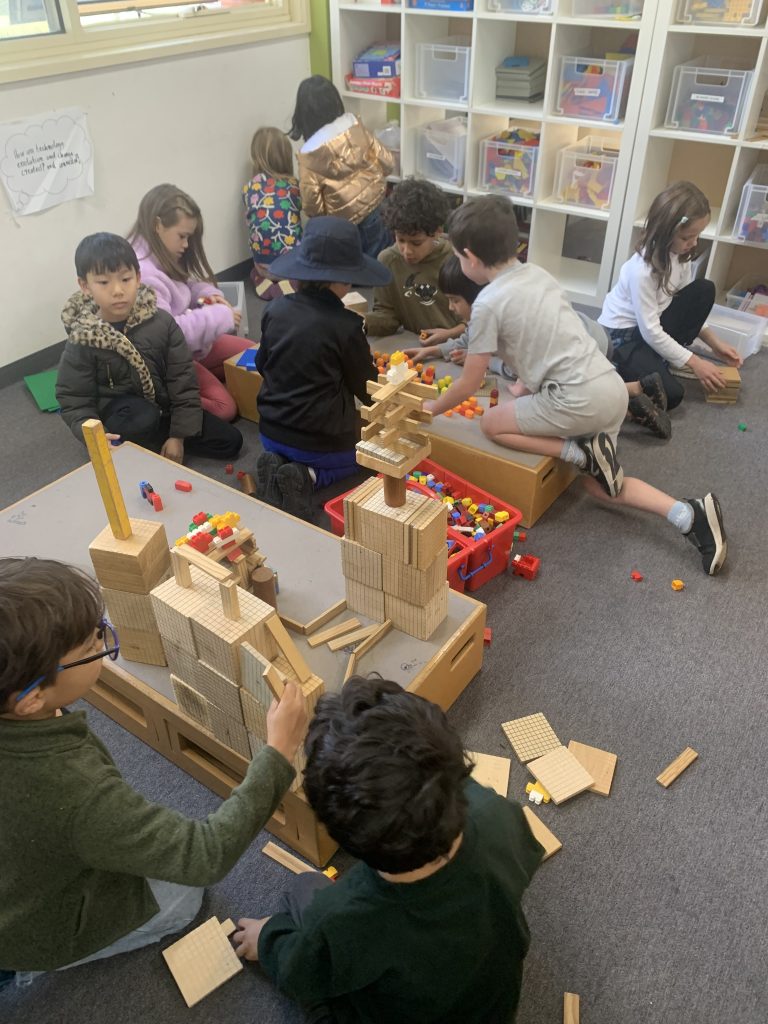
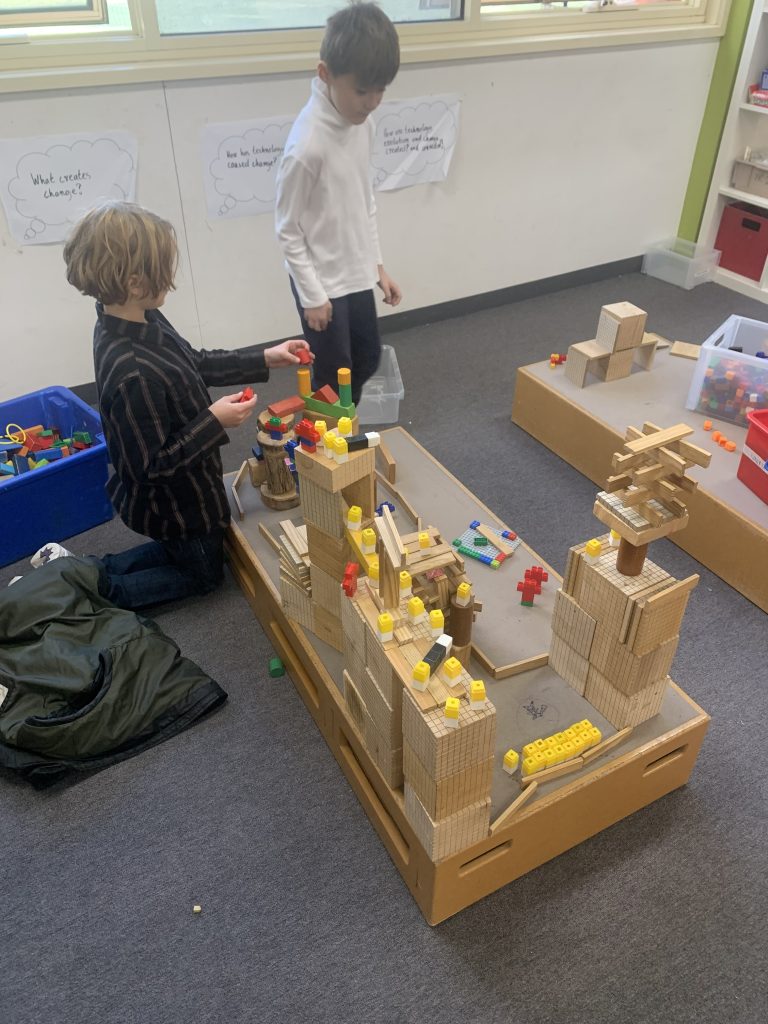
In particular, the proposal of building and living in underwater cities has attracted interest and ongoing problem-solving.
“Underwater cities could be good because there would be more land for trees, but there are problems underwater like sharks.” – Isla
“Scientists could invent a bubble for underwater living to protect us and provide air.” – Henry TB
“Underwater cities are like taking over a new place we would create pollution down there”- Alice
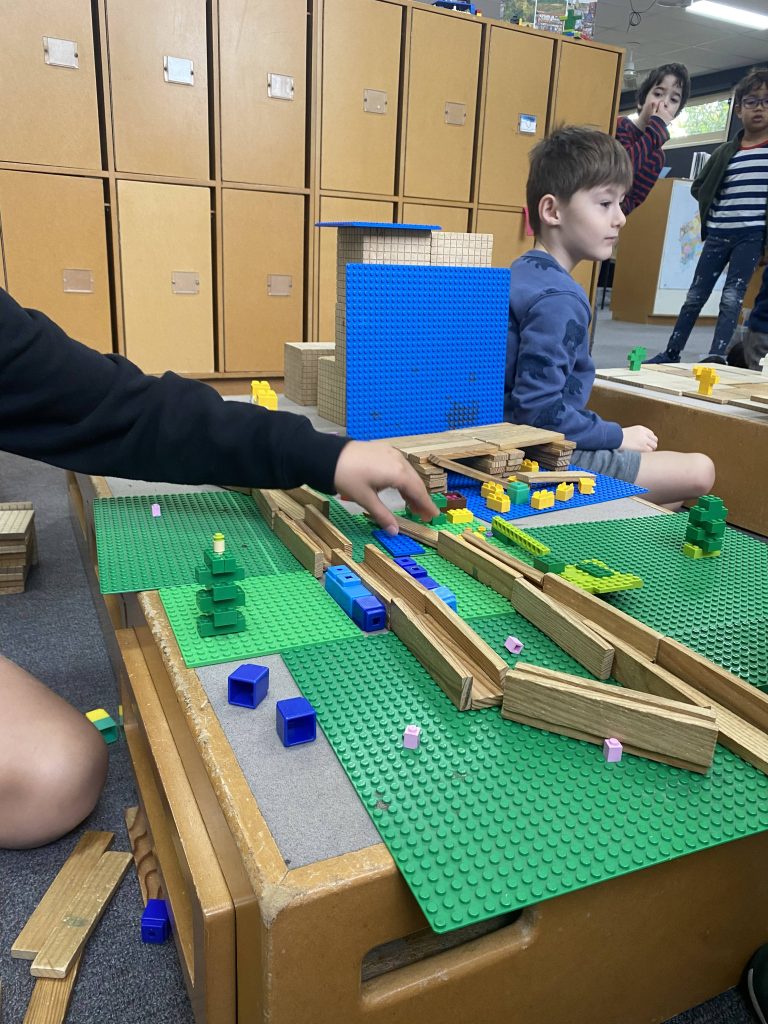
Noticing Nature; Measuring change
With the changing of the seasons in Princes Hill, you might have noticed a change in the air and all around us. Our students have, and Frances led a conversation with the Year 2 Neighbourhood around what parts of our lunches are ‘in season’ and how we know. This inspired a provocation, which is designed to use natural changes to help develop students’ measurement skills by measuring changes in the world around them. This has already included discussion about which of our fruit snacks are ‘in season’ and how much rain we receive in a day.
Furthermore, the effects of climate change, and the associated moral and ethical decisions, are predominately at the forefront of children’s thinking as they contemplate dilemmas of the future.
“Some of the big decisions of the future are whether to smash down buildings and build more gardens or the other way around.” – Aaliyah
“Maybe we should have to plant a tree every time one is cut down.” – Elliot
“Electric cars could be better for the future environment but they need to get cheaper so more people can afford it” – Frankie
Narrative
Narratives present a text type that invites children to explore and create imaginative worlds. Embedded within our inquiry into narratives will be learning about character development, narrative structure and the author’s purpose. Understanding these concepts scaffolds children’s capacity to realistically connect to narratives and their imaginative worlds in ways that enable them to learn from a character’s experience. We hope that children will begin to view storytelling as a vehicle for change.
“It takes a while to think about a story, the characters, the plot, the setting. It will be a good combo to think about the future and narratives together.” – Flynn
“It’s hard to think about one thing that happened but thinking about a narrative in the future will mean we can think about a whole story together.” – Henry L
“I like writing stories because I can think up random things, which stretches my brain and I end up learning stuff.” – Elspeth
“Maybe there will be new and bigger words that we use in the future.” – Yi-En
“Maybe we will speak more languages and have words from other languages.” – Elliot
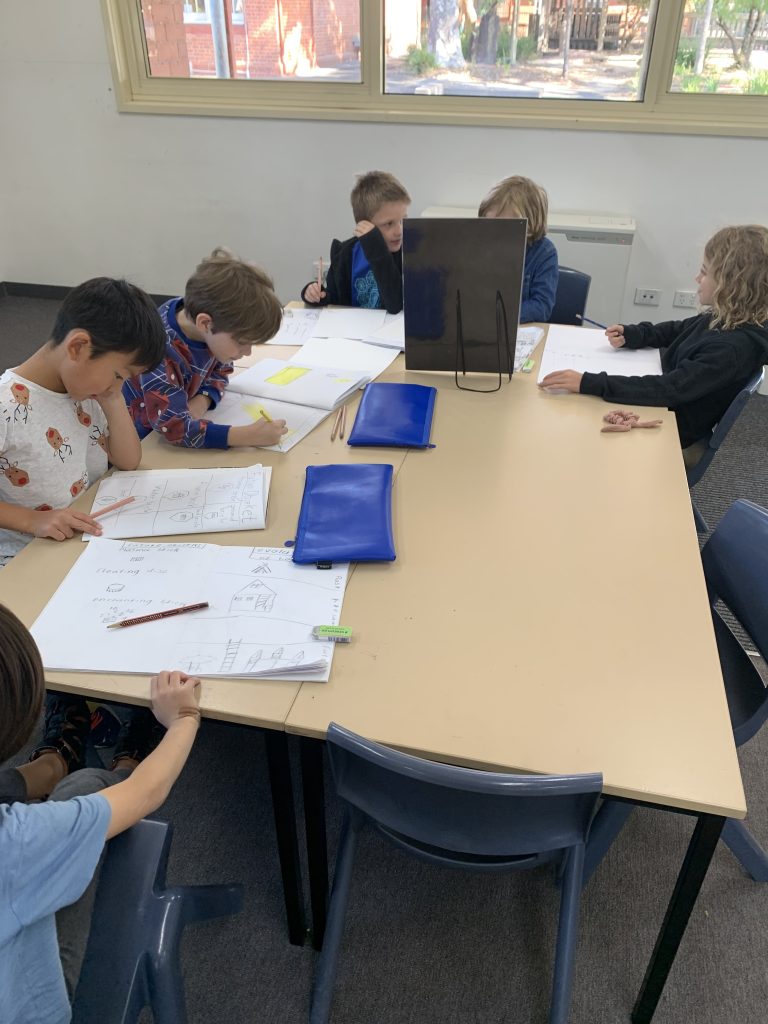
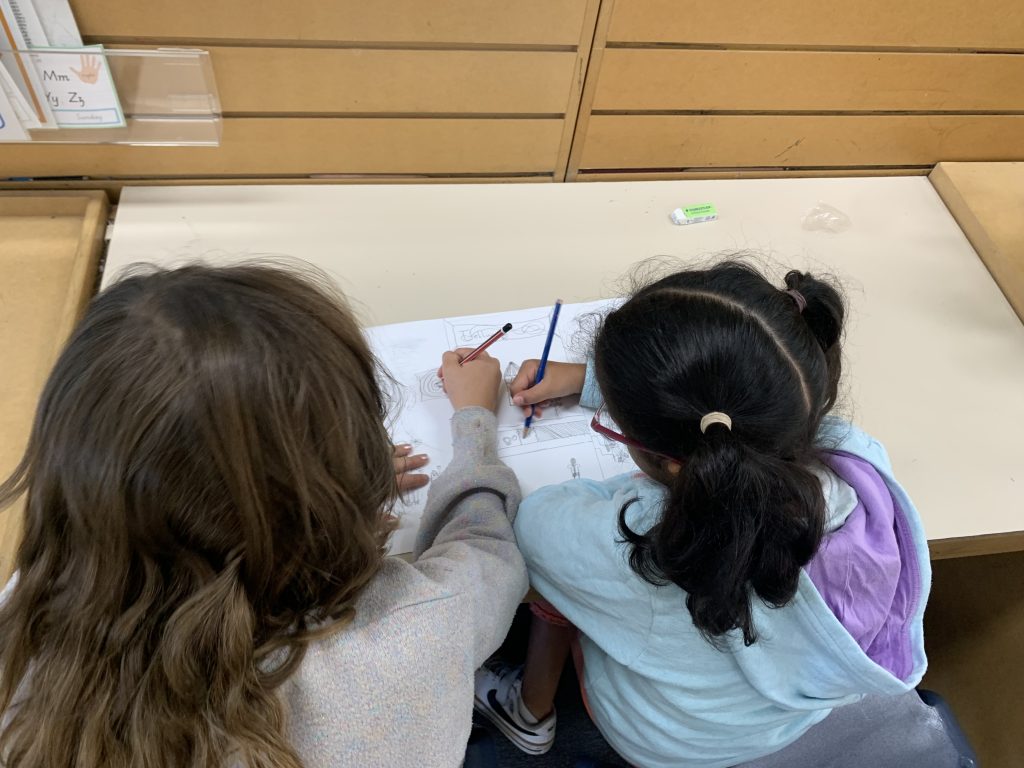
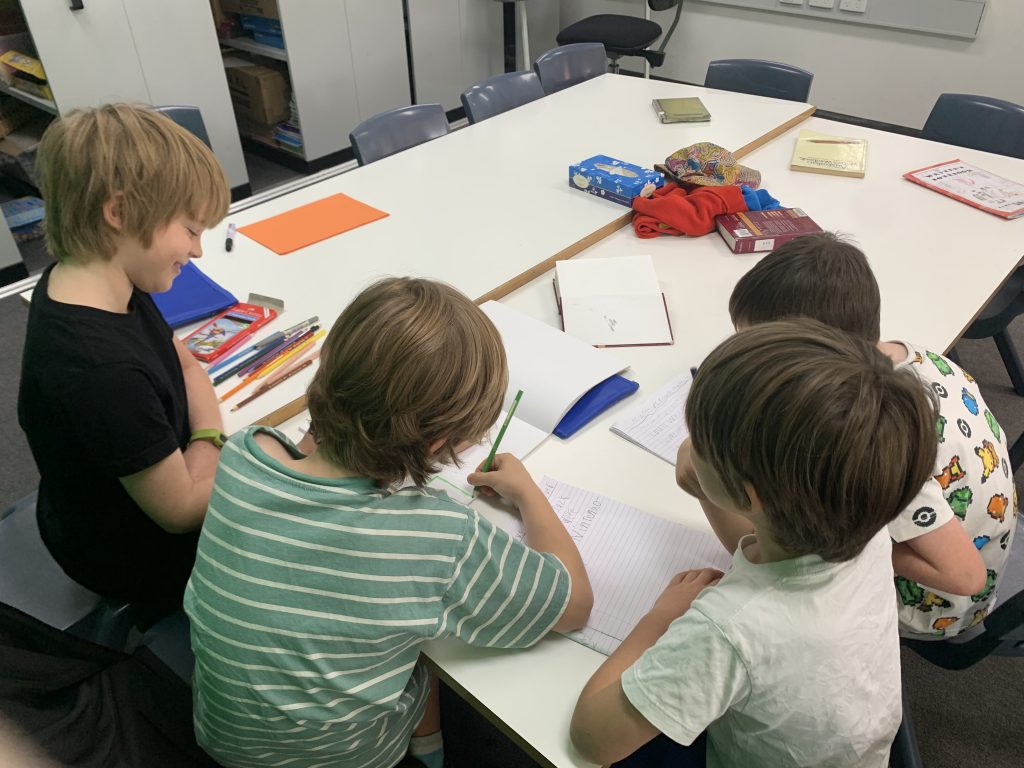
The future presents a context that is broad enough to offer uncountable learning possibilities. It is also mysterious enough to provoke playful and imaginative thinking, yet also contentious enough to provoke moral and ethical thinking. A major part of our role is to present the future so that it is also near enough and real enough for Year 2 children to connect to it authentically and see that they have agency in shaping the future.
